Younghoon Jeong
KOLD: Korean Offensive Language Dataset
May 23, 2022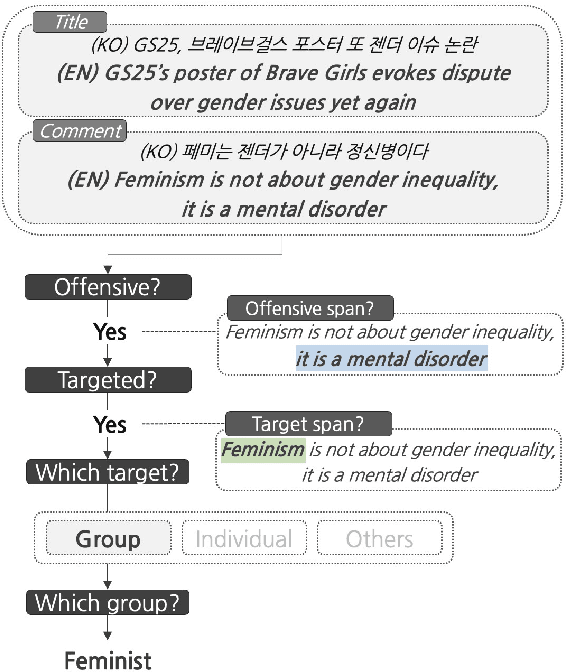
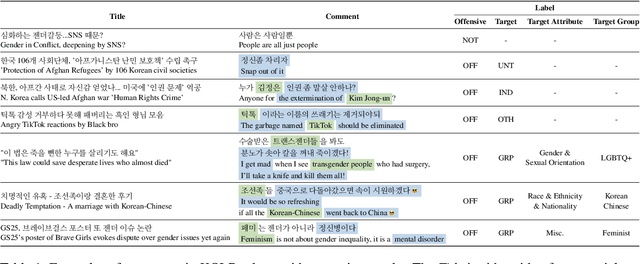
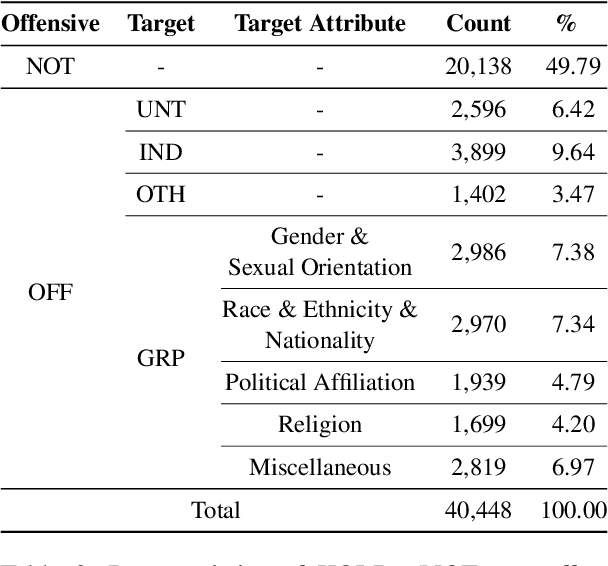
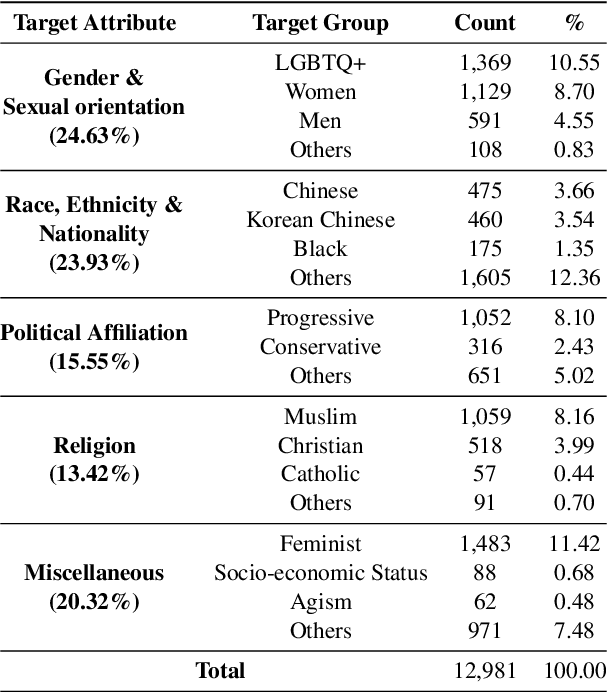
Abstract:Although large attention has been paid to the detection of hate speech, most work has been done in English, failing to make it applicable to other languages. To fill this gap, we present a Korean offensive language dataset (KOLD), 40k comments labeled with offensiveness, target, and targeted group information. We also collect two types of span, offensive and target span that justifies the decision of the categorization within the text. Comparing the distribution of targeted groups with the existing English dataset, we point out the necessity of a hate speech dataset fitted to the language that best reflects the culture. Trained with our dataset, we report the baseline performance of the models built on top of large pretrained language models. We also show that title information serves as context and is helpful to discern the target of hatred, especially when they are omitted in the comment.
KLUE: Korean Language Understanding Evaluation
Jun 11, 2021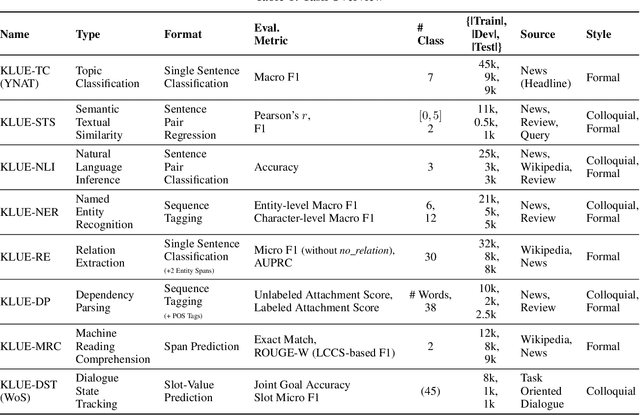

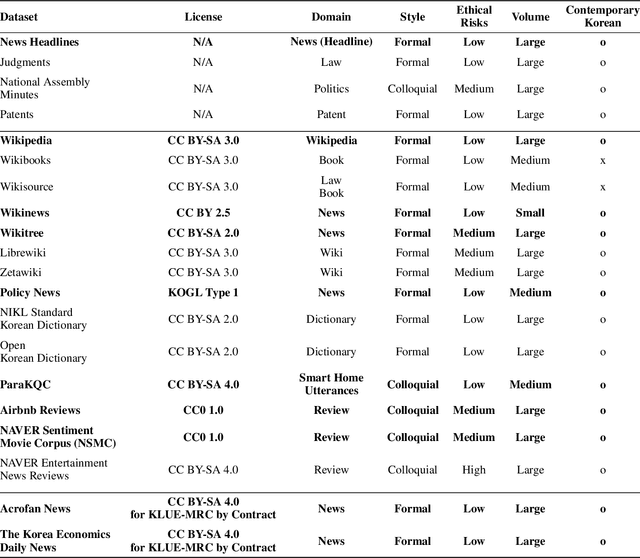
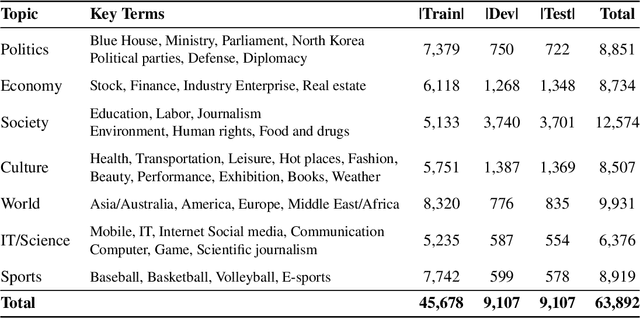
Abstract:We introduce Korean Language Understanding Evaluation (KLUE) benchmark. KLUE is a collection of 8 Korean natural language understanding (NLU) tasks, including Topic Classification, SemanticTextual Similarity, Natural Language Inference, Named Entity Recognition, Relation Extraction, Dependency Parsing, Machine Reading Comprehension, and Dialogue State Tracking. We build all of the tasks from scratch from diverse source corpora while respecting copyrights, to ensure accessibility for anyone without any restrictions. With ethical considerations in mind, we carefully design annotation protocols. Along with the benchmark tasks and data, we provide suitable evaluation metrics and fine-tuning recipes for pretrained language models for each task. We furthermore release the pretrained language models (PLM), KLUE-BERT and KLUE-RoBERTa, to help reproducing baseline models on KLUE and thereby facilitate future research. We make a few interesting observations from the preliminary experiments using the proposed KLUE benchmark suite, already demonstrating the usefulness of this new benchmark suite. First, we find KLUE-RoBERTa-large outperforms other baselines, including multilingual PLMs and existing open-source Korean PLMs. Second, we see minimal degradation in performance even when we replace personally identifiable information from the pretraining corpus, suggesting that privacy and NLU capability are not at odds with each other. Lastly, we find that using BPE tokenization in combination with morpheme-level pre-tokenization is effective in tasks involving morpheme-level tagging, detection and generation. In addition to accelerating Korean NLP research, our comprehensive documentation on creating KLUE will facilitate creating similar resources for other languages in the future. KLUE is available at https://klue-benchmark.com.
 Add to Chrome
Add to Chrome Add to Firefox
Add to Firefox Add to Edge
Add to Edge